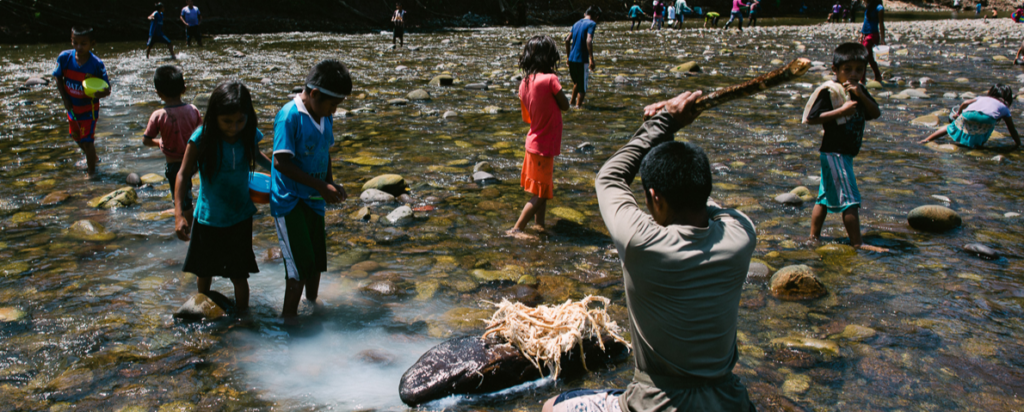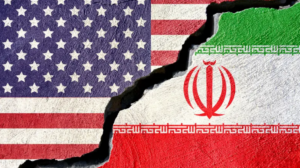
A new report by finance watchdog BankTrack evaluated the policies and practices of 50 major banks and found that most are failing to fully implement adequate safeguards in line with U.N. human rights principles.
The 2024 report included three new criteria centered around the rights of human rights defenders and Indigenous peoples and the right to a healthy environment; the majority of banks did not explicitly acknowledge environmental rights are human rights and all failed in due diligence around Indigenous peoples’ free, prior and informed consent.
The report found that small progress has been made in the last two years as banks improve policies and processes for managing human rights.
The authors say stronger human rights due diligence laws could be a game changer in driving corporate respect for human rights.Major banks, including Citibank and JPMorgan Chase, are still failing to implement the full scope of U.N. human rights principles, a new report has found.
The report by finance watchdog BankTrack evaluated the policies and practices of 50 major banks and found that most are failing to implement adequate safeguards in line with the U.N. Guiding Principles on Business and Human Rights.
This is the fifth iteration of the international NGO’s benchmark series and, for the first time, banks were assessed against three new criteria from U.N. human rights declarations. These criteria consider policies and practices related to the rights of human rights defenders, Indigenous peoples’ rights to free, prior and informed consent (FPIC) and the human right to a healthy environment.
On human rights defenders, 82% of all banks fail to mention human rights defenders and their specific rights. While 66% of banks mention FPIC in their policies, none have processes in place to ensure that clients and investee companies respect it where it is required. Only three banks — Banco Santander, ING and Bank of America — explicitly acknowledge that environmental rights are human rights in their statements of policy.
“Indigenous Peoples face disproportionate risks from the activities banks finance, yet banks are failing to implement adequate safeguards in line with their responsibilities,” Giulia Barbos, a human rights researcher and campaigner at BankTrack and author of the report, told Mongabay over email. “Without these measures, Indigenous Peoples will continue to bear the brunt of harmful projects and exploitative companies.”
However, small progress is being made in improving policies and processes for managing human rights despite the addition of three extra criteria, the report said. Compared with two years ago when 10 banks were ranked in the lowest category, only seven were put in the bottom in 2024. The average score also slightly improved from 5.1 out of 15 points to 5.9 out of 15. Four more banks have also now developed or participated in an accountability or grievance mechanism.
Citibank and JPMorgan Chase did not respond to Mongabay’s requests for comment by the time of publication.
Lack of FPIC in the Peruvian Amazon
In Peru’s Loreto region, Indigenous Achuar, Wampis and Kichwa peoples have fought against repeated attempts by the government and private companies to launch oil operations at Block 64, a field located in the Morona district. Despite their opposition to extractive projects on their ancestral territory, which has led to oil spills and other environmental damage in the past, at least nine oil companies have acquired leases since the concession was created in 1995.
The most recent company to try to establish drilling operations in Block 64 was GeoPark, but it gave up in 2022 after six years of trying to obtain a social and environmental license.
During this time, members of the Achuar and Wampis nations publicly denounced the plans and filed lawsuits to block permits sought by the company. The vice president of the Wampis Nation told Mongabay that, as far as his people and the Achuar were concerned, “our opposition to oil exploitation is categorical, no matter in whose hands the Block ends up.”
Despite a lack of respect for the rights of Indigenous peoples, banks were prepared to finance GeoPark’s operations, Moira Birss, a climate justice and human rights consultant who was not involved in the report, told Mongabay.
In 2020, Citibank and Itaú Unibanco provided GeoPark with a bridge loan so the company could purchase Amerisur, a small Colombian oil producer that operates in the Colombian Amazon. Both companies also acted as bookrunners for a $350 million bond issuance for GeoPark to raise the capital to pay for the purchase.
“Several of the Amerisur blocks acquired by GeoPark had long faced opposition from local communities as well as the Indigenous community Siona of Buenavista,” Birss said.
Both GeoPark and Citibank did not respond to Mongabay’s requests for comment by the time of publication.
Itaú Unibanco told Mongabay it carried out “all the necessary due diligence” when it issued bonds to GeoPark to finance the acquisition of Amerisur. However, it said “there was no disbursement of funds from the bank, such as a loan or bridge loan to GeoPark.” in the context of the acquisition of Amerisur.
Voluntary commitments
According to Barbos, the reason banks are failing to implement appropriate policies and processes is because commitments are voluntary. Meanwhile, governments, which are responsible for implementing and enforcing the U.N. Guiding Principles on Business and Human Rights, often lack adequate legislation or fail to enforce their obligations, she added.
Many banks are signatories of the Equator Principles, a risk management framework intended to ensure projects are free from environmental and social risks. But its principles have been criticized by U.N. human rights experts, organizations and environmental campaign groups for their “noncommittal language” and failure to protect communities and the environment from substantial damage.
In a letter to the governing body of the Equator Principles, U.N. experts expressed concerns about the “refusal by the Equator Principles governing body to establish a central effective grievance mechanism” to consider complaints about noncompliance by Equator Principles financial institutions. This refusal could lead to “serious and irreversible human rights impacts,” they wrote.
There is also inadequate legislation and enforcement on the government level, Barbos said.
Instead, countries should adopt strong mandatory human rights due diligence laws that include the financial sector and incorporate civil liability provisions. This was echoed by Emil Sirén Gualinga, a sustainable finance and Indigenous rights specialist who advised and supported the creation of the BankTrack report. “It is clear that voluntary action and policies are not enough,” Gualinga said.
Gualinga also added that banks must improve their policies on Indigenous Peoples’ rights. “Rather than the current approach of merely ‘expecting clients to avoid’ violating Indigenous Peoples’ rights, banks must instead shift their approach by adopting policies to exclude financing that contributes to or facilitates violations of Indigenous Peoples’ rights and that do not respect free, prior and informed consent.”






